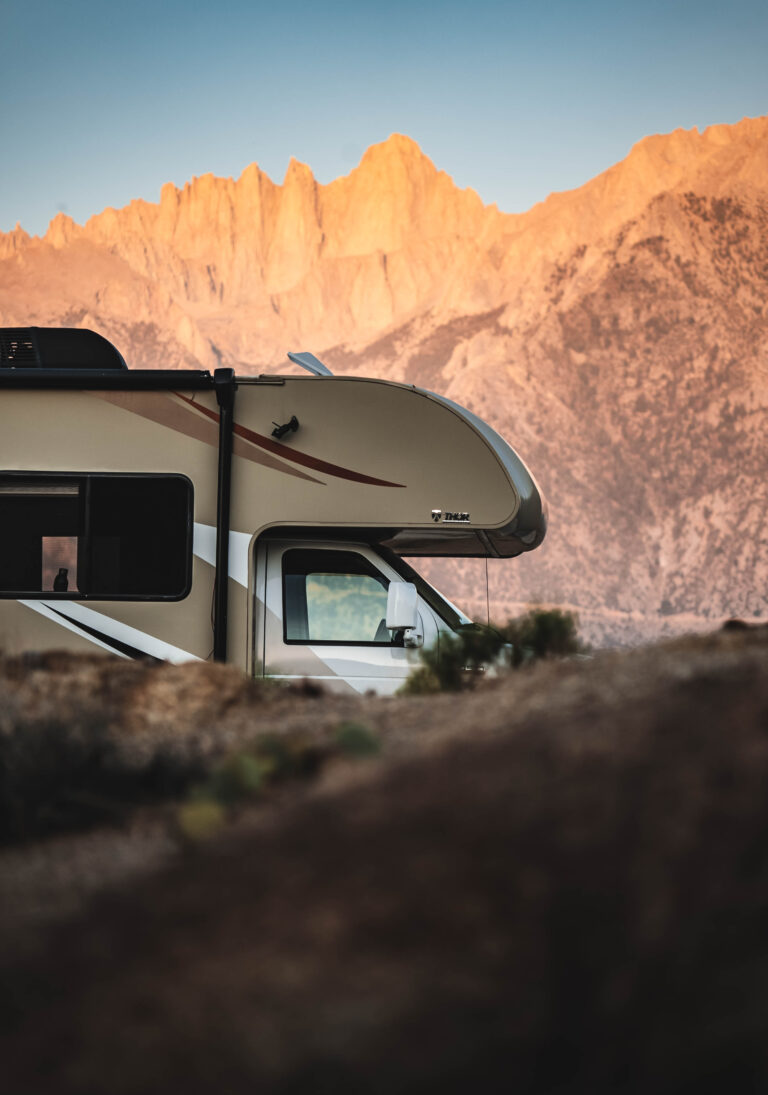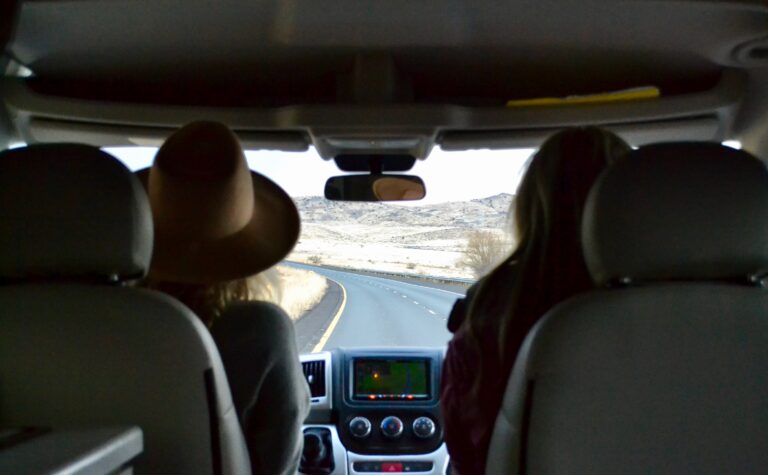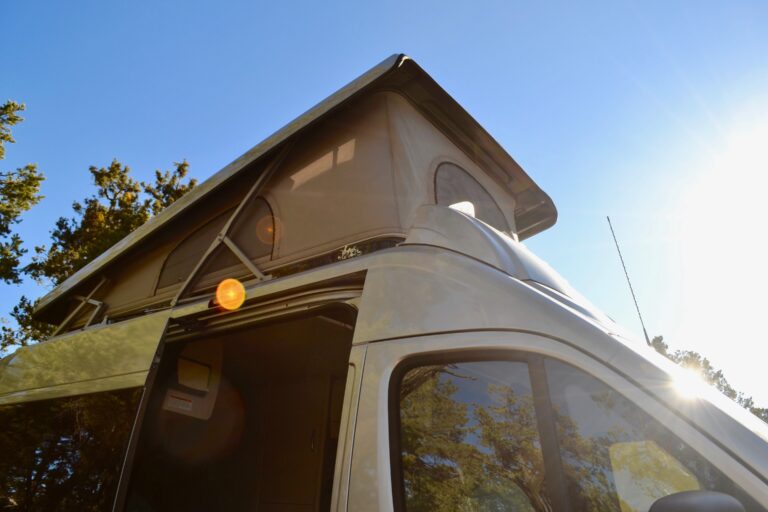
RV campers face a bit of an innate contradiction.
You camp because you love nature… but you know that RV camping, with its significant fuel consumption and carbon emissions, isn’t necessarily the best thing in the world for sustaining that natural environment you’re enjoying.
While we’re still working on coming up with a camper powered solely by sunshine and happy thoughts (… we are working on that, right?), you’ll be pleased to find out that some research suggests RV camping is actually better for the environment than traditional drive/fly/hotel vacations.
Plus, there are lots of easy ways to decrease your carbon footprint while RV camping. While it’s impossible to do just about anything on this planet without impacting the environment to some degree, here are a few steps you can take to make your camping trip more sustainable, responsible, and eco-friendly.
Eco Travel Facts
First things first: What exactly is ecotourism?
Without going into a dictionary definition, ecotravel, green travel, or sustainable tourism all refer to the same general idea: Trying to make the lightest possible impact on the environment during whatever type of travel you’re taking on. Basically, it means trying to stay as green as possible while you’re on the road.
RVing is a great way to see nature, but it can be a little hard on the environment. After all, big Class A motorcoaches sometimes get as little as six miles to the gallon — they’re not exactly leading the pack when it comes to fuel efficiency!
However, if you take steps to mitigate the other ways your camping trip impacts the environment, you can still see the country while feeling good about your sustainability efforts.
Keep reading to find out some of our favorite sustainable travel tips.

Eco Friendly Travel
Fuel use is likely to make up the largest portion of your controllable carbon emission — outside of the resources that go into actually manufacturing the RV, that is.
And while you can’t help using fuel to get where you’re going, you do have control over how far and fast you drive.
For greener travel, consider exploring closer to home, and staying at your destination for longer. Not only will you use less fuel, but you’ll also have a better chance to really get to know the area.
Of course, sometimes, getting to a far-off destination or taking a sweeping road trip with many stops along the way is the whole point. But even on long trips, you can minimize your environmental impact if you pay attention to the following essentials for responsible tourism.
- Use reusable items. Sure, it might be convenient to serve dinner each night on paper plates with plastic forks, but over time, those convenient disposables can pack a serious punch on the local landfill. If you absolutely must use throw-away items — in an effort to conserve water for boondocking purposes, for instance — choose ones that are compostable or recyclable, and make sure to dispose of them properly.
- Choose green cleaners. That harsh, industrial soap you use in your kitchen sink ends up in your grey water tank… which, in some states, it’s totally legal to dump straight onto the ground. (We do not recommend you do so!) Invest in a detergent that’s clean and healthy for your dishes and the dirt.
- Keep warm without your furnace. Even if your RV is equipped with indoor heating, covering up with thermal blankets and trusty sweaters will keep your fuel bill low…. and save you from creating extra emissions. The same goes for your air conditioner, by the way — any time you run your generator, you’re burning fuel. An easy way around this? Camp where it’s temperate during any given season. Not only is it greener, but you’ll be more comfortable outdoors, too!
- Choose eco-friendly campgrounds. If you’re boondocking, stick with sites that have already been camped in before you in order to avoid doing damage to more natural areas. If you’re sticking to constructed campgrounds, choose ones that make an effort to be greener, whether that means heating their swimming pools with solar power or investing in LED light fixtures.
- Respect nature. When you’re exploring the great outdoors, never leave trash or anything else that wasn’t already there behind you — and don’t take anything you see home as a souvenir! By treading lightly, you’ll preserve these beautiful sights and experiences for generations of curious campers to come.
Eco Travel on a Budget
An important consideration for any traveler, but particularly for families, is how to do eco travel without spending an arm and a leg. Everyone knows it’s greener to use solar power than to run an LP-powered generator, for instance, but investing in all those panels is no small feat.
Luckily, every little bit of effort adds up. So even if you can’t afford to go all in for full solar, you can still make sure to eat dinner off reusable plates and be careful about your water consumption. Even finding campgrounds in the shade rather than out in sunny spaces can be a boon, since it means you’ll naturally use less air conditioning — and possibly even less water!

Eco Travel Destinations
When it comes to ecotourism vacations, it’s not the destination that matters so much as it is how you get there and all the decisions you make along the way. But if you’re concerned about the natural environment, you’ll likely have the best time in wild, natural camping spaces as opposed to built-up, resort-style campgrounds — which also happen to generally have a higher per-night fee. (All the better for you, right?)
Some of the best eco travel destinations in the world for nature lovers are right here in the USA. Our country’s vast system of diverse National Parks is famed and cherished for a reason, and an RV is a great way to make the great western loop and hit several of them during one trip. If you do, be sure to purchase an annual pass, even if you spend most of the year on the eastern seaboard where there are many fewer of these parks. At a single $80 price for up to four people, it’s an incredible bargain — Yellowstone alone costs $30 at the gate!
Enjoy this beautiful world around us. Hopefully, if we all pull together and make an effort, it’ll be around to inspire us for a long time to come.

